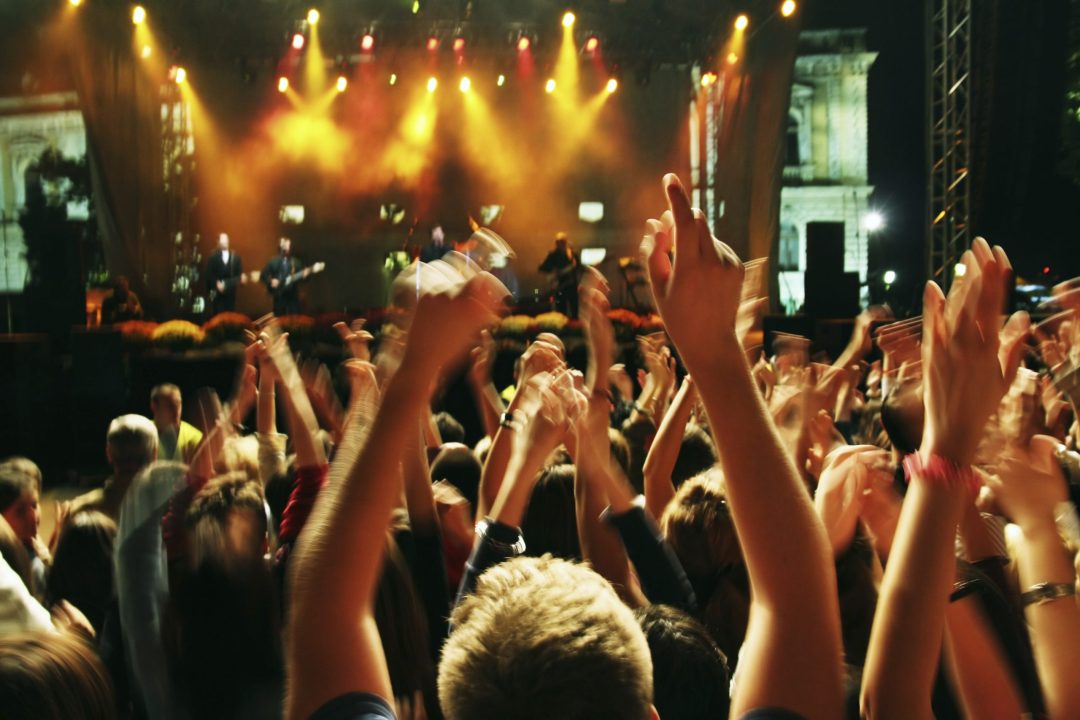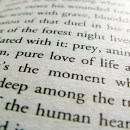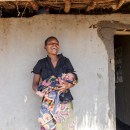What is it like to be blind?
Wearing tunnel vision glasses to experience what it is like to have Retinitis Pigmentosa – a genetic eye disorder which affects the sight of one in every 3,000 to 4,000 people in Europe – Ali Roff enjoyed the Sound for Sight concert raising money for charity RP Fighting Blindness, and experienced what it was like to have limited vision

Have you ever listened to music with your eyes closed and noticed more of the intricate little details about it – a hint of grit in a singer’s voice, a subtle harmony you hadn’t heard before? Now here’s a thought – have you ever been to a concert and closed your eyes? The chances are you haven’t – a major selling point of many concerts from classical to rock, even a DJ set or a rave, is the visual performance, be it from the performers themselves or the light show that accompanies it.
So when I sat down to the Sound for Sight concert last week, and was asked to put on my tunnel vision glasses provided by the genetic eye disorder charity Retinitis Pigmentosa (RP) Fighting Blindness, I was intrigued to see how someone with limited vision enjoys concerts and music. Much like the organiser of Sound for Sight, Laura Westcott, who voluntarily experienced being blind for a week to raise awareness for RP after discovering that her friend, Yvette Chivers, had been diagnosed with the condition, I too have someone close to me who has had RP since childhood. I am constantly in awe of the daily obstacles faced by someone with limited or no vision; the small things sighted people take for granted like reading a menu on a night out or catching the right train home. So for sighted people to directly experience what it means to have limited vision – in this case tunnel vision, which people with RP experience as their sight deteriorates – is a great, thought-provoking, mind-changing thing.
At first the tunnel vision glasses were unsettling. I felt irritated at not being able to see everything that was happening on stage. But as the second act started their performance, and I got into the music, I began to forget about what I could see, or not see, and enjoy the full body experience that music offers.
It helped that the quality of the music and performers was fantastic; they put on a great show for us. But there is a part of me that wonders if it sounded better than many other concerts and stage shows I’ve been to because I was less focused on what I could see and more on what I could hear. From speaking to people I have met with impaired or no vision, I know that music is a huge part of their lives, and I certainly found that I lost my inhibitions; dancing, signing along and cheering, which I usually don't let myself do for fear of looking silly in front of other people. I realised that it is a whole lot more fun if you just let yourself go and enjoy.
As I sit here writing this I try to wear my tunnel vision glasses to see how difficult it is to work with far less sight than I have now. My peripheral vision is totally gone, it’s harder to type and I can’t even see the edges of my computer screen. Trying to talk to people up close is difficult, as I can’t see their whole face. I even have trouble bringing my cup of tea to my mouth to drink it, so much do I rely on my vision.
I know that with practice these things become easier for people who have to live with impaired vision, but for me, someone who feels lucky and grateful to have full sight, I am now more educated as to how truly difficult it is to lose your sight, due to RP and other sight-impairing conditions. Without doubt I have an even greater respect and admiration for those incredible people who are thriving, living their lives to the full with limited sight.
The exciting thing about RP is, although there is no known cure at present, there is real optimism around a breakthrough, and previous clinical trials indicate that treatments may start to become available during the next decade. Help RP sufferers get there faster by donating to Sound for Sight for RP Fighting Blindness here.







